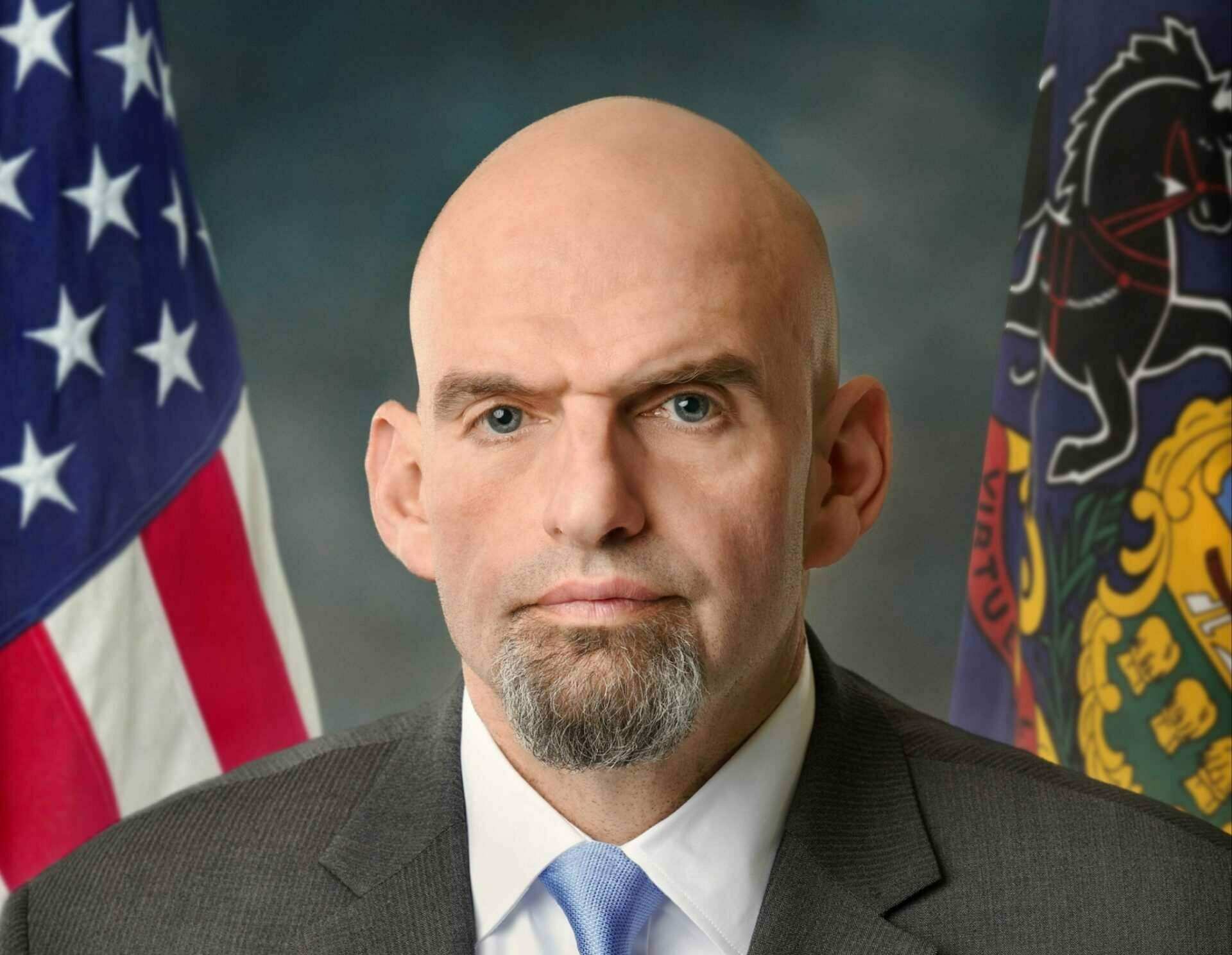Religion plays a significant role in shaping an individual's values, decisions, and worldview. When it comes to public figures like John Fetterman, understanding their religious beliefs can provide deeper insight into their personal and professional life. Fetterman religion has been a topic of interest for many, especially given his prominence in American politics. As a public servant, Fetterman’s faith and spiritual inclinations may influence his policies, community interactions, and leadership style. This article will explore the religious aspects of John Fetterman’s life, shedding light on how his beliefs align with his public persona and political career.
John Fetterman, the Lieutenant Governor of Pennsylvania and a U.S. Senate candidate, is known for his progressive policies and unconventional approach to politics. While much of the public discourse revolves around his political stances, his religious beliefs often remain in the background. However, understanding Fetterman’s faith can offer a more holistic view of his motivations and values. This article will delve into his religious background, the role of faith in his life, and how it intersects with his political ideology.
In today’s polarized political climate, discussions about religion often spark debate. Fetterman religion is no exception. Whether you are a supporter, a critic, or simply curious, this article aims to provide a balanced and well-researched perspective on how faith influences one of Pennsylvania’s most prominent political figures. By the end of this guide, you will have a clearer understanding of John Fetterman’s religious beliefs and their implications.
Read also:Who Is Oanh Moon Nguyen A Comprehensive Guide To Her Life Achievements And Influence
Table of Contents
- Biography of John Fetterman
- John Fetterman’s Religious Background
- The Intersection of Faith and Politics
- Fetterman’s Faith-Based Community Involvement
- Core Values and Beliefs Influenced by Religion
- Public Statements on Religion
- Criticism and Controversies
- Impact of Religion on His Political Career
- Sources and References
- Conclusion
Biography of John Fetterman
John Fetterman was born on August 15, 1969, in Reading, Pennsylvania. He grew up in a middle-class family and developed an interest in public service early in life. Fetterman’s journey into politics began when he served as the mayor of Braddock, a small town in Pennsylvania, from 2006 to 2019. His tenure was marked by efforts to revitalize the struggling community through innovative programs and grassroots initiatives.
Below is a table summarizing key details about John Fetterman’s life and career:
| Full Name | John Richard Fetterman |
|---|---|
| Date of Birth | August 15, 1969 |
| Place of Birth | Reading, Pennsylvania |
| Political Affiliation | Democratic Party |
| Current Position | Lieutenant Governor of Pennsylvania (2019–present) |
| Education | Albright College (B.A.), Harvard University (M.P.P.) |
Fetterman’s rise in politics has been characterized by his unconventional style and focus on social justice issues. His approach often reflects a deep commitment to helping marginalized communities, which some attribute to his personal values and beliefs, including his religious inclinations.
John Fetterman’s Religious Background
Understanding Fetterman religion requires examining his upbringing and family influences. Fetterman was raised in a culturally Christian household, though he has not publicly identified with a specific denomination. His parents, both active in their community, instilled values of compassion, service, and empathy, which are often associated with religious teachings.
Early Influences on His Faith
Fetterman’s early exposure to faith came through family traditions and community involvement. Growing up, he attended church services occasionally, but his family emphasized the importance of living out religious principles rather than adhering strictly to rituals. This pragmatic approach to faith has shaped Fetterman’s worldview and his focus on action over dogma.
Current Religious Affiliation
As of now, John Fetterman has not publicly aligned himself with a particular religious group. However, he has expressed admiration for the moral teachings of Christianity and other faiths. In interviews, Fetterman has highlighted the importance of love, kindness, and justice—values that resonate across multiple religious traditions.
Read also:Discover The Best Telegram Somali Link 2024 Your Ultimate Guide
The Intersection of Faith and Politics
For many politicians, faith serves as a guiding force in their decision-making process. Fetterman religion is no exception. While he does not wear his faith on his sleeve, his policies often reflect principles rooted in religious teachings, such as compassion for the vulnerable and advocacy for social justice.
Policy Decisions Influenced by Faith
- Social Justice Initiatives: Fetterman has championed policies aimed at reducing inequality, which aligns with the biblical mandate to care for the poor and oppressed.
- Criminal Justice Reform: His advocacy for reforming the criminal justice system reflects a belief in redemption and second chances, themes prevalent in many religious texts.
- Healthcare Access: Fetterman supports expanding healthcare access, emphasizing the moral responsibility to care for others—a value shared by many faiths.
Public Perception of His Faith
Fetterman’s approach to religion has garnered mixed reactions. Some appreciate his focus on universal values rather than divisive religious rhetoric, while others criticize him for not being more explicit about his faith. Regardless, his actions often speak louder than words, earning him respect from diverse communities.
Fetterman’s Faith-Based Community Involvement
Beyond politics, Fetterman has been actively involved in faith-based community initiatives. His work in Braddock, for instance, included partnerships with local churches and religious organizations to address issues like poverty and unemployment. These efforts demonstrate how Fetterman religion translates into tangible actions that benefit society.
Key Projects and Collaborations
- Urban Revitalization: Fetterman collaborated with faith leaders to transform abandoned spaces into community centers.
- Food Security Programs: He supported food banks and meal distribution programs, often working alongside religious groups.
- Youth Mentorship: Fetterman initiated mentorship programs that incorporated moral and ethical teachings inspired by various faiths.
Core Values and Beliefs Influenced by Religion
Fetterman’s core values, such as empathy, integrity, and inclusivity, are deeply rooted in religious teachings. These principles guide his interactions with constituents and inform his policy priorities. For example, his commitment to inclusivity reflects the idea that all individuals are created equal—a concept found in many religious doctrines.
Empathy in Leadership
One of Fetterman’s defining traits is his ability to empathize with others. This quality is often attributed to his faith-based upbringing, which emphasized the importance of understanding and supporting those in need. Whether addressing constituents or debating policy, Fetterman’s empathetic approach sets him apart from many traditional politicians.
Public Statements on Religion
While Fetterman is not known for making frequent public statements about his faith, he has occasionally addressed the topic in interviews and speeches. In these instances, he emphasizes the importance of moral responsibility and ethical leadership, values that are central to many religious traditions.
Notable Quotes
- “Faith, for me, is about action—about how we treat others and the kind of world we strive to create.”
- “I believe in the power of love and kindness to transform communities.”
- “Religion should inspire us to be better people, not divide us.”
Criticism and Controversies
Despite his positive contributions, Fetterman religion has faced criticism from certain quarters. Some argue that his reluctance to label himself as a member of a specific faith undermines his credibility. Others question whether his policies truly align with religious teachings or if they are merely politically motivated.
Addressing the Critics
Fetterman has addressed these criticisms by focusing on the outcomes of his work rather than labels. He argues that his actions speak louder than any religious affiliation and that his ultimate goal is to serve the greater good.
Impact of Religion on His Political Career
Fetterman’s faith has had a profound impact on his political career, shaping his policies, priorities, and leadership style. By focusing on universal values and practical solutions, he has managed to appeal to a broad audience, transcending religious and political divides.
Future Implications
As Fetterman continues to pursue higher office, his approach to religion will likely remain a key aspect of his public persona. Whether running for U.S. Senate or beyond, his ability to balance faith with pragmatism will be crucial in maintaining voter support.
Sources and References
This article draws on a variety of reputable sources, including interviews, speeches, and reports on John Fetterman’s life and career. For further reading, consider exploring the following:
- Official website of John Fetterman
- Interviews with Fetterman published in major news outlets
- Academic studies on the intersection of faith and politics
Conclusion
John Fetterman’s religious beliefs, while not always in the spotlight, play a significant role in shaping his values and decisions. By focusing on universal principles like compassion, justice, and service, Fetterman religion offers a refreshing perspective in today’s polarized political landscape. Whether you agree with his policies or not, there is no denying the positive impact of his faith-inspired actions.
We invite you to share your thoughts on this topic in the comments below. If you found this article informative, please consider sharing it with others or exploring more content on our site. Together, we can foster meaningful discussions about faith, politics, and the intersection of the two.

